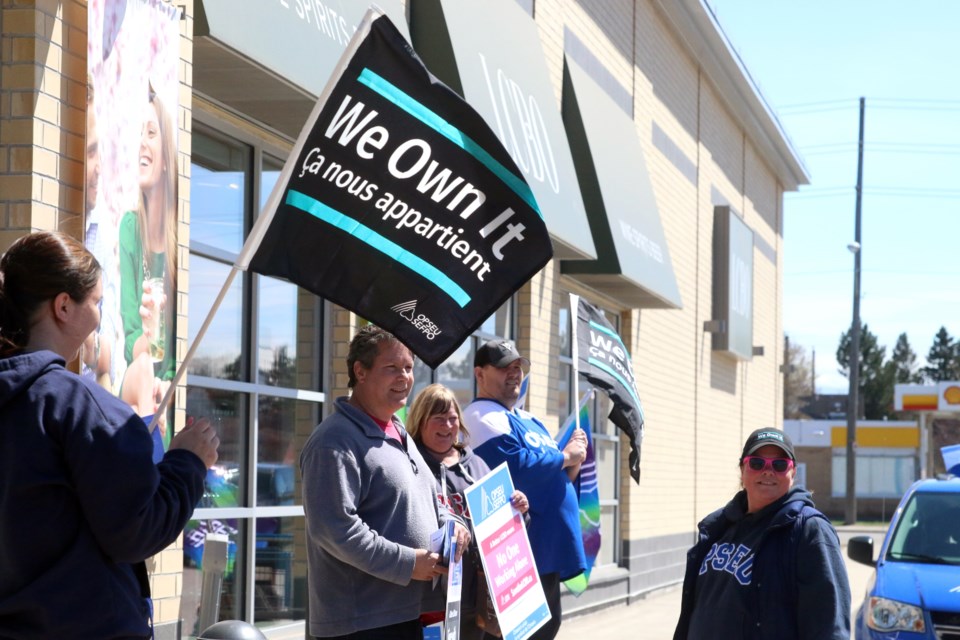THUNDER BAY - The union representing Liquor Control Board of Ontario employees is arguing the privatization of liquor sales in the province will hurt all Ontarians where it matters most, their wallets.
On Thursday, members of OPSEU Local 741 held an information picket at the LCBO on Arthur Street to warn against what the union calls growing privatization.
“We don’t think that selling wine and spirits in grocery stores is in the best interest of the LCBO, especially since the profits of the LCBO generates,” said Rob Mithrush, local vice president for Local 741. “Almost $2 billion a year go back to the people of Ontario, whereas the profits that grocery stores create, go back to buying yachts for the CEOs.”
Last year, the province of Ontario legalized the sale of alcohol in certain grocery stores. The two Safeway locations and the Real Canadian Superstore in Thunder Bay were among the stores selected to sell beer.
As recently as last week, the Metro on River Street and the Wal-Mart on Memorial Avenue joined the list, which brings the total number of outlets in Ontario now selling alcohol to 206. The province plans to allow the sale of alcohol in up to 450 stores across the province.
“It seems to me that most of the grocery stores are only blocks away from an LCBO, so for matters of convenience, it isn’t much out of their way to go to an LCBO,” Mithrush said.
Grocery stores are required to sell alcohol in designated areas by properly trained staff. But according to Mithrush, employees working at LCBO locations provide a level of service not available at grocery stores, which not only affects an evening meal, but people’s safety as well.
“We are trained in food and wine matching, we have been trained to prevent the sale of alcohol to minors, people who are intoxicated, and second party purchases and I think we do a fantastic job in that way,” he said.
For those shopping at the Arthur Street location, privatization brings benefits, but also some drawbacks.
“I know other provinces in Canada have had privatized liquor sales for some time now, so maybe it’s time for us to catch up,” said Bryan.
“It seems like every time we privatize something, the cost skyrockets,” said Bob. “Just take our licenses for our vehicles, it used to be $30, now it’s up to $60 just for a sticker for your vehicle.”
Mithrush believes the union’s message is sticking with the majority of people who support what the union is doing and what the LCBO has to offer.
“This is a public entity,” he said. “The Ontario people own the LCBO, they don’t own Walmart, they don’t own Metro. So this is their property. For them to lose the sales, they are actually losing a part of their own profit. When the grocery stores are selling it, they are not contributing to the infrastructure of roads, hospitals and day cares.”
